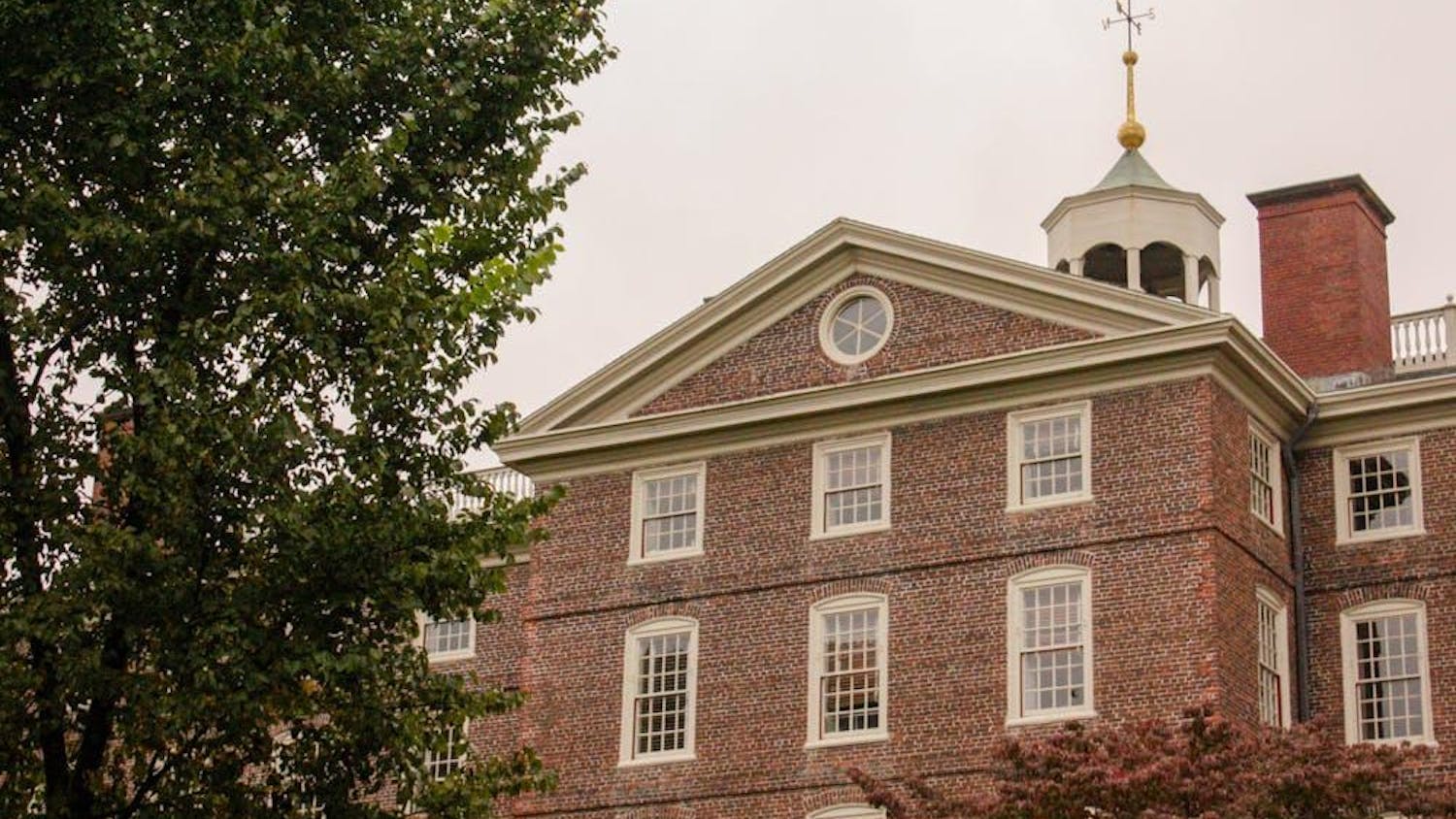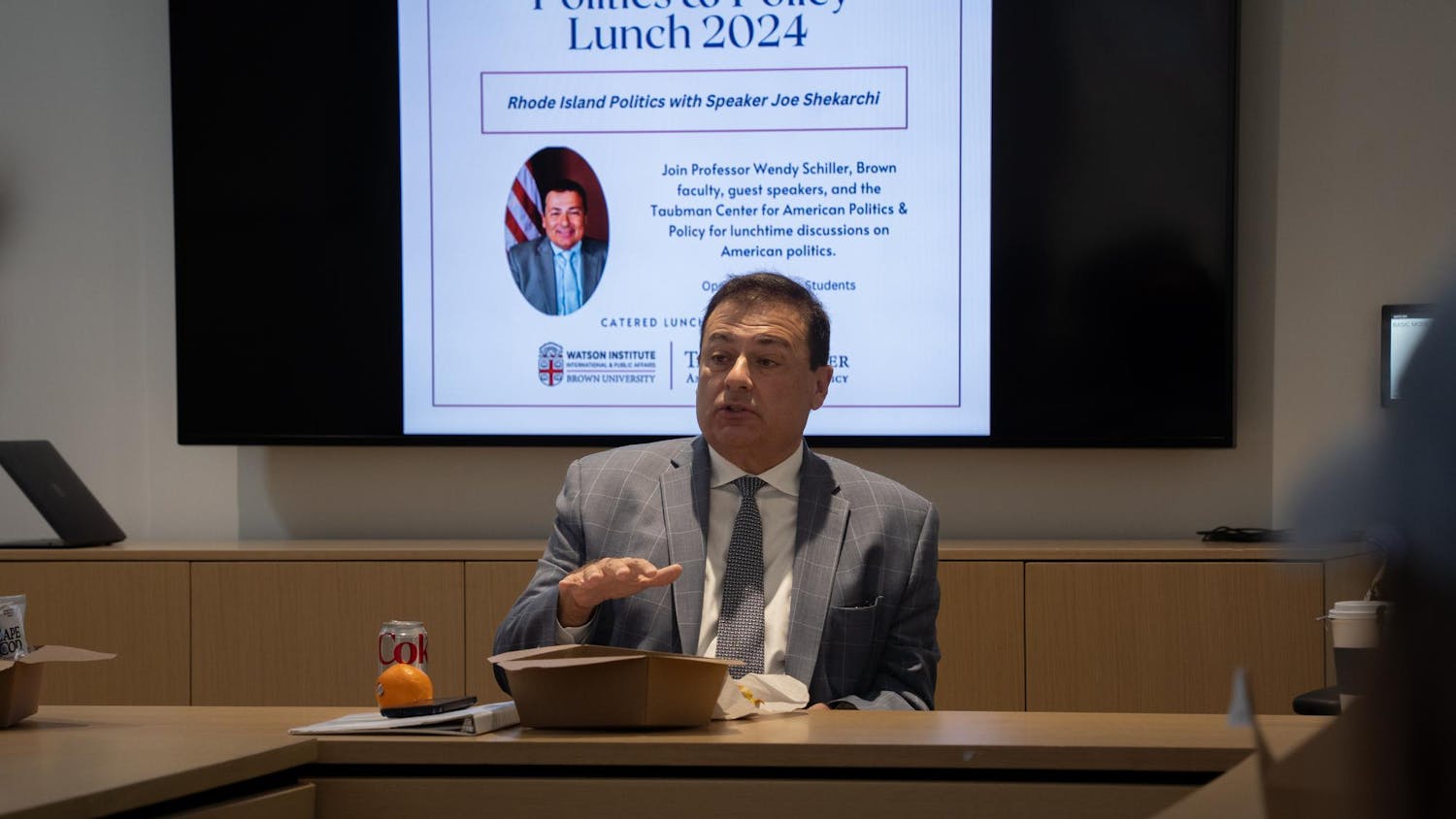A recent University report suggests extensive underreporting of sex crimes on campus, students and administrators said.
The annual Campus Crime Report, released last month by the Department of Public Safety, indicated that there had been 10 claims of "forcible sex offenses" made in 2009.
Statistics from a 2000 report by the National Institute of Justice and the Bureau of Justice Statistics predict that about one in 36 female university students is the victim of rape or attempted rape each academic year — suggesting that just over 100 female Brown students would have been victims last year. At other Ivy League universities, the number of reported forcible sex offenses ranges from eight to 17.
Director of Health Education Frances Mantak said that since sexual assault is one of the most underreported crimes, the large gap between the crime report number and the actual number of cases is "normal and expected."
Catherine McCarthy '11, president of the Sexual Assault Task Force, said that though she would not be able to estimate the number of actual cases of sexual assault, 10 "is not even in the ballpark."
Mantak said one reason for the low number is the shame associated with being a victim of sexual assault. The practice of victims denying assault in order to protect themselves is common in other traumatic experiences, especially in a culture of victim-blaming attitudes, she said.
"Claiming identity as a victim is difficult," said Anna Quinn '13, a Women Peer Counselor.
She said that even the differing definitions of sexual assault makes reporting sexual assault difficult. "A lot of people have regrettable sexual encounters," Quinn said, but defining an assault is sometimes tricky.
"We have to listen but be careful never to label someone else's experience as assault," Quinn said.
Yet those interviewed agreed that the decision to report an assault — and, if reported, to involve the police in the investigation — should be completely up to the victim.
Mantak said the best approach to handling any situation of sexual assault is "victim empowerment and victim choice."
"Reporting should be 100 percent up to the survivor. The University has no right to tell the police if a survivor doesn't want to," McCarthy said, since a legal investigation has more severe repercussions, takes more time and takes a larger toll on the victim.
"It is up to the victim how much they want to go through," McCarthy said. "There should be no obligation for them to do anything."
The University should help victims learn their options, including choosing whether to report, Mantak said.
Quinn said this is what WPCs aim for when dealing with victims of sexual assault — to "let them know their options."
There are many victims who don't officially report but instead seek support, Mantak said.
"There are a lot of ways of talking about the experience," she said. "If we focus on number of cases reported, we lose sight of people who talk to friends, therapists or WPCs."
According to McCarthy, the University's system with dealing with assaults "is slowly improving." One recent improvement, spearheaded by the Sexual Assault Task Force, was a change in the sexual misconduct policy, which now separates sexual assault offenses into two categories — one for less severe cases of non-consensual assault and another that deals with violent acts and penetration. The separation, McCarthy said, allows for expulsion to be considered for offenses falling in the second category.
Another improvement has been the addition of a staff position specifically dealing with sexual assault. Before the hiring of Trish Glover as the University's sexual assault response and prevention program coordinator, the "lack of staff was glaring," McCarthy said.
Glover is no longer on staff, but Mantak has taken over her responsibilities and said there is a search underway for Glover's replacement, which she hopes will be over soon.
But, Quinn said, even more important improvements can be made at the University — not necessarily in dealing with reported sexual assault cases, but in addressing their prevention.
"There are some good conversations going on, but the University could do more," Quinn said.
At the heart of the issue, Quinn added, is that even if Brown can provide all of the adequate resources to victims, most cases will end up unreported because of the continuing social stigma against victims.
"If you are comfortable, there are people there to help, but it is easier said than done," she said.
Mantak added that current coverage of William McCormick III's case deters successful handling of sexual assault cases. McCormick, a former member of the class of 2010, is suing the University because he believes he was unfairly removed from Brown after being accused of rape.
Coverage of a case where the victim's side is unreported is "not a good place to learn about the dynamic of sexual assault" at Brown, Mantak said.
In a letter published in The Herald last April, students from the Sexual Assault Task Force, including McCarthy, wrote that the coverage, which focused "on the truthfulness of the victim's statement, rather than on the University officials' alleged misconduct," did "the entire Brown community a disservice."
In the end, regardless of how an assault is handled — whether it is reported or not — supporting the victim and increasing awareness of sexual assault is what matters, Quinn said.
"The feeling of violation is what needs to be talked about, whether it counts as a crime or not," she added.




